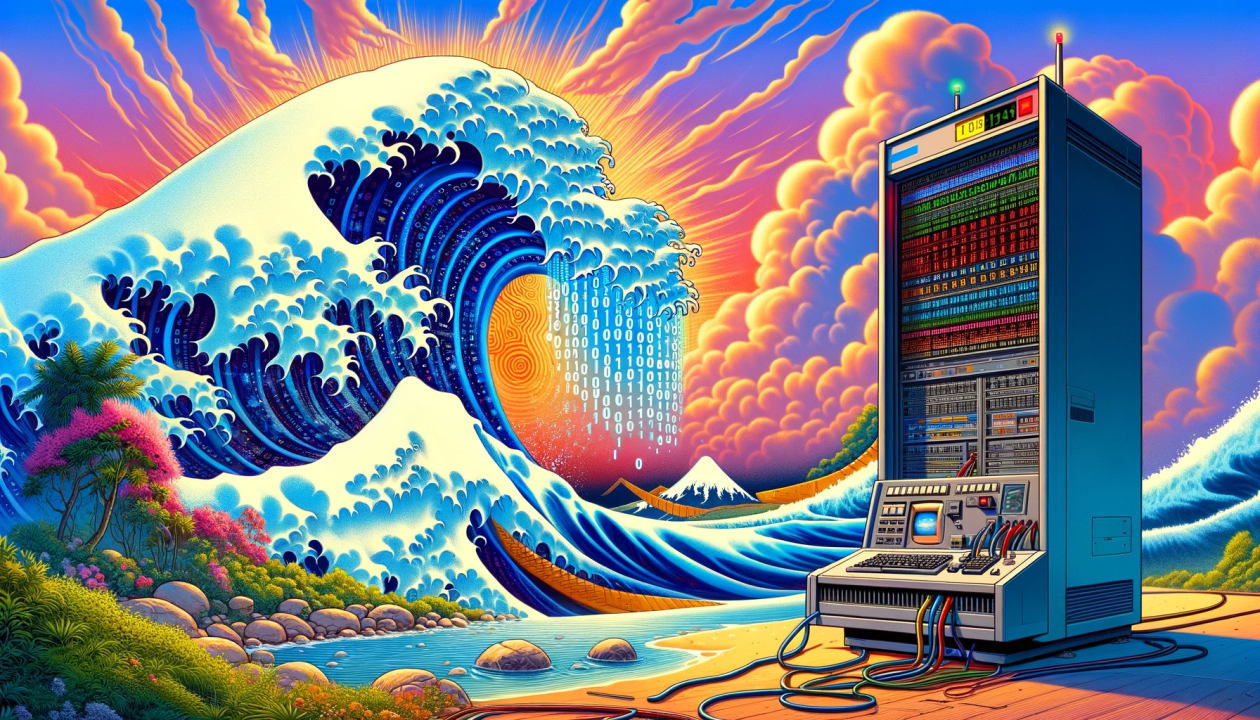2024 is poised to set records in the US with the mass retirement of the Baby Boomer generation - the “Gray Tsunami”. This year’s outflux will add to the 30 million retirees who started leaving the workforce during the pandemic's onset. According to CBS news, an average of 11,000 Americans will turn 65 every day this year, becoming eligible for retirement benefits. Happy Birthday to them!
The adage "you don’t know what you have until you lose it" underscores our tendency to take things for granted. We're overlooking and underestimating the wealth of knowledge about our businesses and core legacy systems that will soon depart with retirees heading to Florida or another retirement haven. With the assistance of Artificial Intelligence (AI), we currently have an opportunity to rediscover and capture the institutional knowledge owned by the soon-to-be retired employees and minimize the loss of crucial knowledge about our mission-critical applications. But swift action is imperative.
Another milestone in 2024 is the 60th birthday of the Mainframe on April 7th. There's no indication that the Mainframe, like its operators, will retire at 65. IBM and third-party vendors continue to make strategic and bold investments in the platform. Anticipation surrounds IBM's potential release of the z17 in 2025, with AI likely at the forefront of announcements. Happy Birthday to the Grande Dame of computers!
Late last year, IBM introduced watsonX Code Assistant for Z (WCA for Z), a generative AI product accelerating Mainframe application modernization. Despite no public release yet, the product boasts features beyond COBOL-to-Java refactoring, such as application discovery and documentation, promising increased developer productivity and facilitating knowledge transfer. IBM doesn’t plan to use WCA for Z to help customers leave the Mainframe. Surprise!
Other AI-fueled products like GitHub Copilot (GitHub is owned by Microsoft) have demonstrated an emergent ability in documenting and refactoring Mainframe COBOL applications. In a recent article, I shared my POV on the use of Generative AI and AI-powered tools in a Mainframe modernization project.
What's crucial for our discussion today is leveraging AI to bridge the expertise gap between generations. This divide isn't just technical; it's also cultural. It's akin to one group being from Jupiter and the other from Saturn, to paraphrase the known metaphor about relationships between the sexes. AI can act as the intermediary, fostering communication, collaboration, note-taking, summarization, and code documentation between these groups. Integrating Mainframe experts, their cloud-native colleagues, and the inorganic facilitator, AI into the same team has the potential to safeguard valuable and business differentiating insights and wisdom from being lost as retirees move on to other pursuits.
The good news is that Knowledge Management is one of the use cases bringing value to enterprises who have started the AI transformation journey. A good compilation of how Generative AI has revolutionized the knowledge management world can be found in an article published in Forbes mid-2023. So, the task becomes to create topic-specific knowledge centers—centers of excellence that support Mainframe knowledge sharing scenarios in your organization.
One specially resonating point in the article is that workers often resist sharing knowledge because of time constraints. I would say that it is even more challenging when retirement plans are top of mind. With Generative AI capabilities, the subject matter expert’s (SME) activities can be automatically documented (e.g. while entering or responding to a ticket in an ITSM) and combined with an LLM trained in ticket data and prior curated knowledge articles to generate a first draft on a particular topic. This document can then be reviewed and approved by the SME. Editing a document is easier and faster than creating one from scratch.
Another example is how Mott MacDonald, a Microsoft 365 customer used Project Cortex to enhance knowledge sharing and learning among employees, as described in an article published shortly the capability was announced at Ignite in 2019. This pre-ChatGPT and Microsoft Copilots, AI-powered service within Microsoft 365 provides quick access to information and expertise, leading to better project outcomes for clients and the retention and augmentation of SME’s knowledge before it walks out of the enterprise. In 2021, Project Cortex was rebranded Microsoft Viva Topics which is part of the Microsoft Employee Experience Platform (EXP) Viva.
I conclude with a call to action for Mainframe and midrange modernization vendors. Active involvement of the customers' SMEs is vital for successful Mainframe transformations. In the early stages of your engagement (sizing, assessments, discovery), there's an opportunity to assist clients in capturing soon-to-be-lost expertise using Generative AI and other AI tools and services. This effort is not only beneficial for your clients but also advantageous for your projects, as it mitigates the negative impact of the ongoing retirement wave. Moreover, it presents an opportunity to deliver added value to your clients and moves you towards becoming a trusted advisor.
The retirement wave is crashing now! We need to spring into action immediately to safeguard our invaluable and unique knowledge assets before they're irretrievably lost. It's crucial that we join forces with mainframers, modern technology experts, and AI tools without delay to seize the vast institutional knowledge our retiring employees hold. Let's mobilize swiftly and decisively!
If you would like to learn more about this topic, or discuss your ideas, please contact the Microsoft team at mainframetransformed@microsoft.com.

